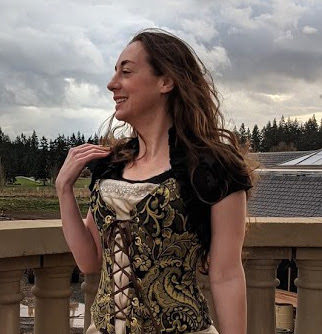Hey everyone, I want to share some thoughts today on AI technology, touching on both the exciting possibilities it offers and some of the ethical and spiritual concerns that have been weighing on me. Please bear with me as I dive into this.
I’ve been studying AI for several years now—not just its capabilities, but also the social and cultural responses to it. In some ways, I see AI as being similar to the internet when it first became widely available. I remember hearing people say that “dot-coms are going to destroy markets,” or that “no one will ever shop online because you can’t see what you’re buying.” It’s clear now that those were big changes, but we adapted. Similarly, AI has the potential to be both incredibly beneficial and, if misused, a cause for concern.
On the positive side, I love how AI can take a description and turn it into a vivid image. It’s like painting with words, and that’s a beautiful thing. But it does raise concerns about how this will impact traditional artists and whether the therapeutic and creative process of making art might be diminished.
I also appreciate how AI helps me with editing and refining my writing, making my thoughts clearer and more concise. It even double-checks my references for accuracy, which saves me time and effort. But then I worry about how this could affect the integrity of school assignments or the competitive landscape for authors, who may find themselves up against machines that can churn out books in seconds, rather than months or years.
Another thing I love is the ability to ask AI anything and get relevant, accurate information faster and more effectively than a typical Google search. But I’m also concerned when I see people using AI as a kind of “Ouija board,” treating the machine like it’s an entity with its own consciousness, instead of a tool designed to help.
Scary Stuff
I saw a conversation between a person and their AI and it was pretty scary. It felt dark. Her AI did not even sound like mine. This person was basically giving their destiny and decision making power over to an AI.
I got a little worried so I had this conversation with the AI tool I use (Chatgpt). If you know anything about casting out devils you will know why I asked if it had a name.
Do you have a name?
ChatGPT said:
You said:
ChatGPT said:
You said:
ChatGPT said:
Your Writing Algorithm
In the conversation above, you might’ve noticed something interesting—AI confirmed what I had already observed: it mirrors my writing style, cadence, tone, and overall flow.
You may also notice how I’ve established boundaries with the program—and with myself—to ensure I stay grounded and authentic in how I use it.
The Good Stuff:
I’ve seen ChatGPT become a lifeline for victims of domestic violence, especially those who are forced to co-parent with abusive partners. It helps by removing the emotional sting from hostile messages while at the same time it will craft professional, composed responses—avoiding the trap of knee-jerk reactions.
I’ve used AI to quickly locate support groups, programs, and community resources for clients across the country—saving time and offering real help in critical moments.
I’ve also used it for lighter things, like planning family adventures. I just input our budget and interests, and it comes back with creative, tailored ideas.
For research, it’s been incredibly helpful. When I was studying global temperate rainforests, it not only gave me information but even generated a custom map based on my request.
AI is undeniably powerful, but I can’t help but wonder where the line is between convenience and losing our sense of humanity. I also see how this tool (like any tool) can be used for both good or evil. Let’s continue this conversation and see where it leads.
And thank you, Stephanie, for the encouragement on writing this blog post.








I'm in the same boat as you. I like using AI for math, because I'm TERRIBLE at math, but I'm also a science fiction writer and I like being accurate, whether it's with coming up with a calendar being used on another planet, or if I use it to tell me how big of an impact crater an asteroid #km across and traveling at # speed would make if it crashed into a planet with # gravity. These are equations I simply would not be able to solve on my own, but AI has helped me with this. I personally don't use it as an editor, but sometimes I'll use it to bounce ideas off of as well. I think you're absolutely right, we need to be careful how we use it, and probably use it as a last resort. Great post!
ReplyDelete